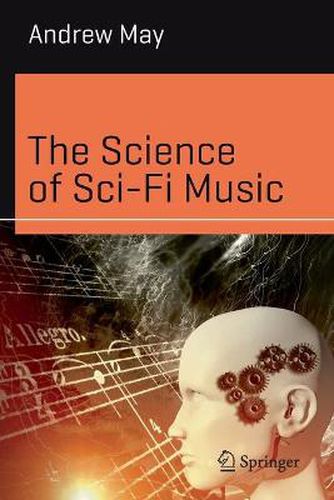Readings Newsletter
Become a Readings Member to make your shopping experience even easier.
Sign in or sign up for free!
You’re not far away from qualifying for FREE standard shipping within Australia
You’ve qualified for FREE standard shipping within Australia
The cart is loading…






This title is printed to order. This book may have been self-published. If so, we cannot guarantee the quality of the content. In the main most books will have gone through the editing process however some may not. We therefore suggest that you be aware of this before ordering this book. If in doubt check either the author or publisher’s details as we are unable to accept any returns unless they are faulty. Please contact us if you have any questions.
The 20th century saw radical changes in the way serious music is composed and produced, including the advent of electronic instruments and novel compositional methods such as serialism and stochastic music. Unlike previous artistic revolutions, this one took its cues from the world of science.
Creating electronic sounds, in the early days, required a well-equipped laboratory and an understanding of acoustic theory. Composition became increasingly algorithmic , with many composers embracing the mathematics of set theory. The result was some of the most intellectually challenging music ever written - yet also some of the best known, thanks to its rapid assimilation into sci-fi movies and TV shows, from the electronic scores of Forbidden Planet and Dr Who to the other-worldly sounds of 2001: A Space Odyssey.
This book takes a close look at the science behind science fiction music, as well as exploring the way sci-fi imagery found its way into the work of musicians like Sun Ra and David Bowie, and how music influenced the science fiction writings of Philip K. Dick and others.
$9.00 standard shipping within Australia
FREE standard shipping within Australia for orders over $100.00
Express & International shipping calculated at checkout
This title is printed to order. This book may have been self-published. If so, we cannot guarantee the quality of the content. In the main most books will have gone through the editing process however some may not. We therefore suggest that you be aware of this before ordering this book. If in doubt check either the author or publisher’s details as we are unable to accept any returns unless they are faulty. Please contact us if you have any questions.
The 20th century saw radical changes in the way serious music is composed and produced, including the advent of electronic instruments and novel compositional methods such as serialism and stochastic music. Unlike previous artistic revolutions, this one took its cues from the world of science.
Creating electronic sounds, in the early days, required a well-equipped laboratory and an understanding of acoustic theory. Composition became increasingly algorithmic , with many composers embracing the mathematics of set theory. The result was some of the most intellectually challenging music ever written - yet also some of the best known, thanks to its rapid assimilation into sci-fi movies and TV shows, from the electronic scores of Forbidden Planet and Dr Who to the other-worldly sounds of 2001: A Space Odyssey.
This book takes a close look at the science behind science fiction music, as well as exploring the way sci-fi imagery found its way into the work of musicians like Sun Ra and David Bowie, and how music influenced the science fiction writings of Philip K. Dick and others.